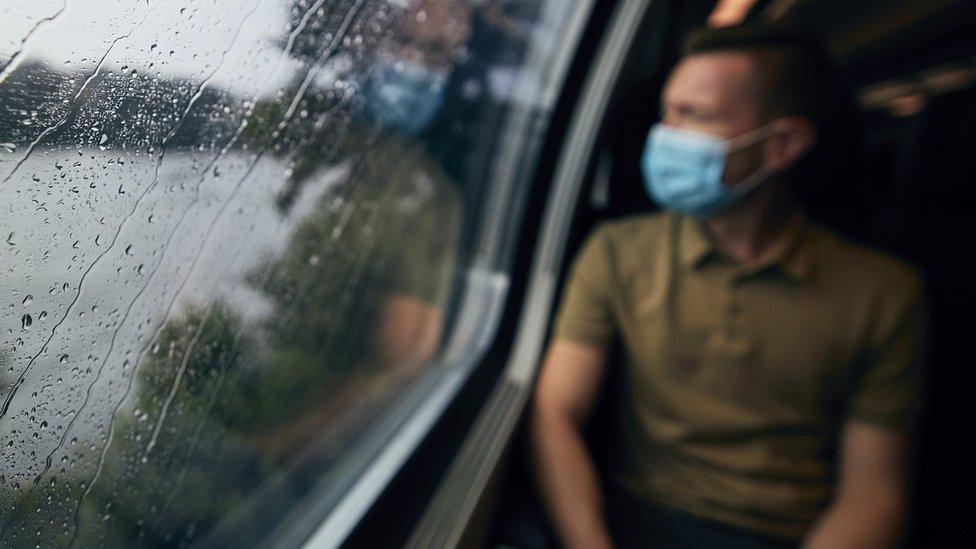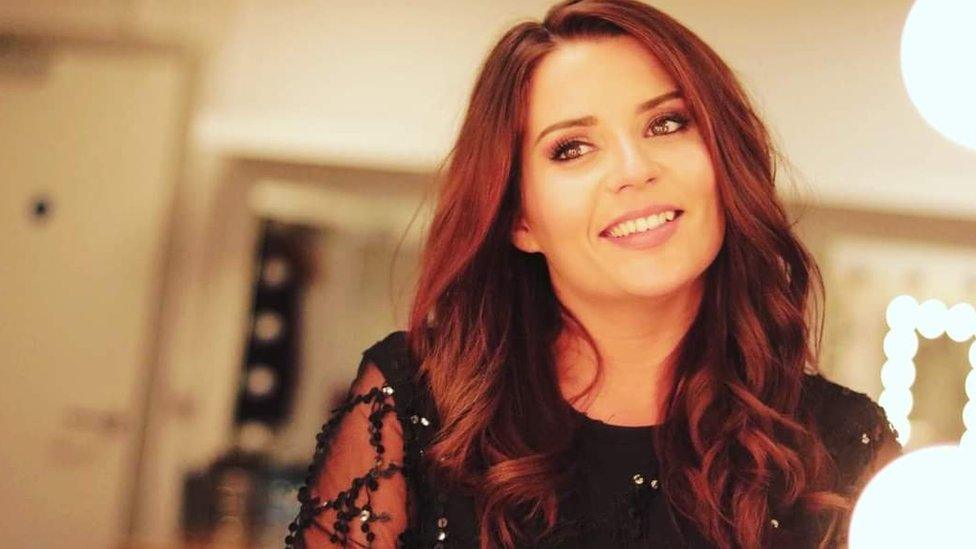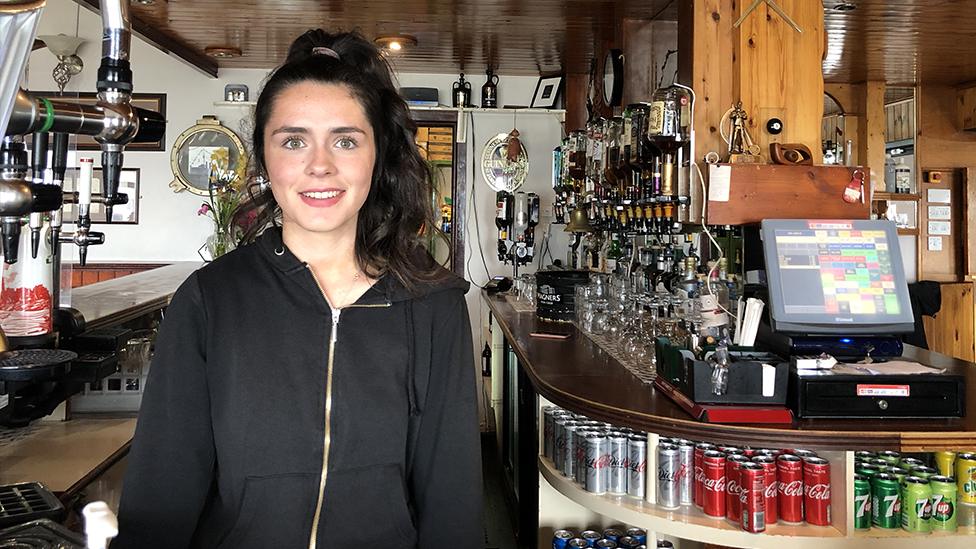Coronavirus in winter: 'This time of year is harder than lockdown'
- Published

Full lockdown is over - but so is summer. As the days get shorter, darker and the temperature drops below acceptable BBQ conditions, we're all slowly realising our lives are going to be very restricted for months to come.
Just from talking to people, it feels many are finding this bit harder than full lockdown - the inability to plan, the uncertainty of what's to come, the very real lack of fun - to simply not knowing if you'll be able to see your mum at Christmas.
In short, after an emotionally draining six months, a lot of us have run out of steam.
Radio 1 Newsbeat's been getting mental health tips on the things we should - and shouldn't do, as well as hearing from some of you on why this time is so tough.
'I can't keep putting my life on hold'
Natalie White graduated from the University of Salford in the summer.
"Obviously we didn't have a graduation which a lot of students experienced," she remembers. "Which was extremely disheartening."
But she got a job and started working as a content creator for a streaming site. But things didn't work out as her mental health began to deteriorate.
So she quit.

Natalie worries she has hasn't got the mental strength to deal with more restrictions
"Being stuck inside the house, away from my friends and family, I really struggled.
"There was a lot of anxiety and I got consumed by all the news stories around the virus."
Her boyfriend had been in hospital last Christmas and she was "terrified that he'd end up back there and I wouldn't be able to be with him".
"The fact we could go through the same again, I honestly don't know how to feel about it. If I carry on putting my life on hold, I think I'll explode. I don't think I'd be able to handle another one."
Natalie's far from alone.
'We're all burned out'
"The time we've spent coping with the day-to-day difficulties during lockdown, it's easy to not notice the emotional toll that's taken on us - and we haven't had enough time to recover properly," says Chris O'Sullivan from the Mental Health Foundation.
After one of the toughest six months any of us have ever faced, "the idea of going backwards is challenging", he adds.
"We're all burned out and jaded and now we have to go all over again."
Chris says there's no point pretending it won't be hard but there are things we can do to help ourselves. And a lot of that boils down to only worrying about what you can control. Easy to say but when when you're terrified about losing your job or having no money - it's harder to put into practice.
'How do you eat an elephant? One slice at a time'
It's an odd mental image but it's a good phrase to back up what Chris is saying.
"There are things that will happen over the next few months that we can't plan. We don't know where we'll be at Christmas, we don't know where we'll be in the next month," he says.
Chris suggests focusing on what you can control on any given day. "Make short term goals, the next hour, the next day, the next week. Don't worry about what comes down the line."
'How can I do this for another six months?'
Jenni Monday was working on a cruise ship when it got hit with coronavirus. She was stuck inside her cabin for two months as the ship floated around international waters, trying to find a country that would allow it to dock.
"It was really horrible and really lonely," she says. The 28-year-old from Southampton struggled with her mental health but is now finding things harder.

Jenni's now got an admin job but it's not the same buzz as performing
"Performing and singing helped with my anxiety, it gave me a buzz. I've been with the same band for 10 years and I don't get to see them anymore. We don't live near each other. Music to me is therapy. I didn't realise, until now, how much I needed it."
Jenni, like many others, thought we were heading in the right direction with the virus - that after the summer things would get better.
"I've done six months, can I really do another six months of living a life that is so alien to me? That's the bit that's hit hardest."
Lots of advice tends to focus on what you should do to help yourself cope. But just as importantly, there are things that are good to avoid doing. Here are three from Chris O'Sullivan:
Don't pay too much attention to social media speculation about the virus.
Don't worry about how others are responding to the restrictions - you can't do anything about it.
Don't watch too much news.
Another important tip is not to judge yourself compared to what others are doing.
"We often compare our insides to everyone else's outsides," he says, pointing out we don't know what's going on in someone else's head.
And try and keep some perspective. There are things we can do now that we couldn't in full lockdown - it's worth clinging on to those small wins.
"Be kind to yourself and others. There are people to talk to - you friends and family are all going through the same thing," says Chris.
That certainly works for Jenni, who likes to remind herself that "every single person around the world in some way has been affected by this virus".
"So it's quite comforting to know that - as horrible as that sounds, and to know that we can all relate to each other and help each other out."

- Published1 October 2020

- Published22 September 2020
